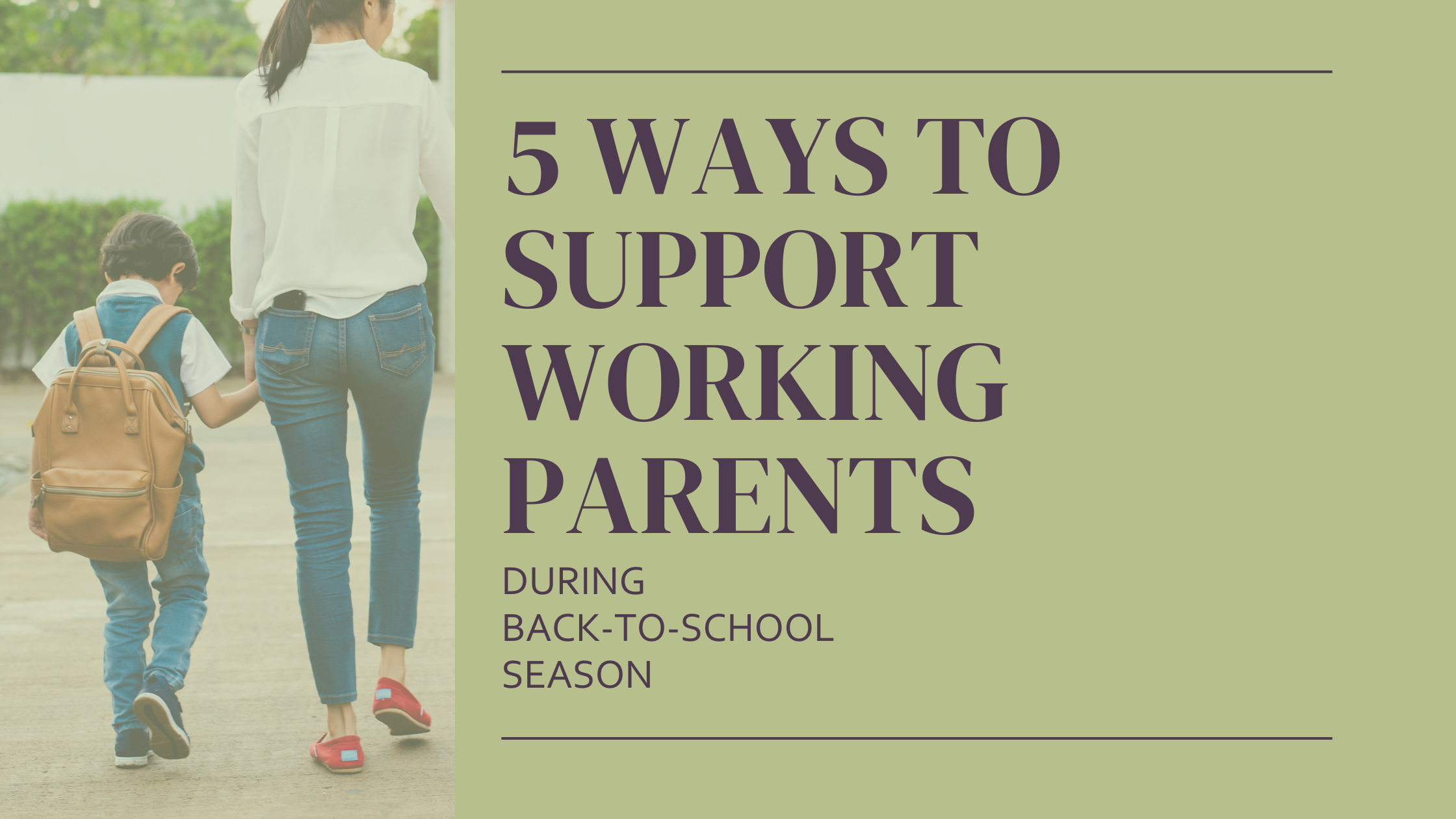5 Ways to Support Working Parents During Back-to-School Season

Article originally published on August 7, 2024 by HRMorning.com. Written by Carol Warner.
Back-to-school season is here to throw a wrench into working parents’ routines – and that can also affect the workplace.
Working parents face a lot of challenges during back-to-school season. Even before it begins, parents need to start thinking about school supplies and childcare schedules. And it doesn’t slow down when school starts: Parents need to adjust their schedules to work in extracurriculars, homework and more.
Why HR Needs to Support Working Parents
Supporting working parents matters. Doing so can improve employee satisfaction and engagement, but not doing so can have devastating consequences.
“The effects seep into the workplace as parents shuffle schedules around pickups and drop-offs, take on the mental load of managing busy routines, and gear up for the unavoidable illnesses and school breaks to come during the school year,” says Wes Burke, chief human resources officer at Care.com. “The ultimate effect? Without proper support, workplaces are bound to see productivity take a hit and absenteeism spike among working parents.”
Here are five ways HR can help.
1. Prioritize a Healthy Work-Life Balance
The idea of self-care seems far-fetched for many working parents, who are already juggling so much in their day-to-day. So embedding employee wellnessinto your company culture can help working parents prioritize their own well-being without it seeming like just another task to add to their plate.
For example, an employee resource group can help create a safe space for working parents to come together and share experiences and resources. During the back-to-school season, having this community can give working parents a place to vent their stress and ask for peer support.
“We have an extensive parenting inclusion network that helps educate parents on our offerings and provides a supportive community where employees can share experiences, tips, and advice for other working parents throughout the year,” says Kim Jones, people experience leader at PwC. “By implementing these types of programs … employers can create a workplace environment where parents feel valued, empowered and well-equipped to manage their professional and parenting responsibilities effectively.”
2. Offer Financial Benefits
Despite cutting back on big-ticket items like electronics, back-to-school shoppers still plan to spend about $586 per student in 2024 for kids in kindergarten to 12th grade, according to Deloitte.
Paired with inflation and the already sky-high cost of living expenses, the extra financial stress that comes with back-to-school season can take a real toll on working parents.
Offering financial wellness benefits like education and sessions with advisors – such as through an employee assistance program – can help working parents get a handle on their finances and prepare for the associated costs throughout the school year.
3. Embrace Flexibility
Flexibility can do wonders for many employees. For working parents, though, it can be a lifeline as they work out new schedules and adjust to new routines.
“Whether it’s giving a parent control of their hours to accommodate school activities and manage transportation, avoiding team meetings during pick up and drop off times or allowing more flexibility during the afterschool childcare gap, support from an individual’s leader will go a long way in creating work-life harmony for working parents during back-to-school season,” says Burke.
It’s important to remember that flexibility for working parents isn’t one-size-fits-all, and each family has different needs. For example, some parents may need to log on earlier to accommodate school drop-off, while others may want to shift their hours to the evening to get their work done after the child is asleep.
4. Offer Childcare Benefits
On top of offering flexibility, another issue working parents face – especially during back-to-school season – is childcare.
How important is it? Six out of 10 working parents believe their employer should offset the cost of childcare, according to KinderCare’s 2024 Parent Confidence Index.
Moreover, the study found that more than half of working parents said childcare benefits were among the top three reasons they stayed at their job (along with healthcare benefits and PTO).
Childcare benefits can do wonders to help stressed-out parents. Impactful childcare benefits could look like:
- Reimbursements for childcare or discounts to childcare centers
- Access to emergency backup care or reimbursements for backup care
- PTO time for emergency childcare situations.
“For times when school’s closed for faculty meetings or a child falls sick on a day a parent has a team-wide presentation to lead, employer-sponsored backup care days can come to the rescue,” says Burke. “In turn, employers will see these family-focused benefits allow parents the mental and physical bandwidth to work when their personal and professional lives inevitably collide.”
5. Listen, Understand and Validate
At the end of the day, sometimes the thing that a working parent needs the most is a safe space to vent and be heard.
Working parents can get caught in a loop of being in work mode to parent mode and then right back to work mode; offering support and encouraging them to talk it through can help give working parents the reprieve they need to be their best selves, both at work and at home.